Repulsion (1965)
“They’re all the same, these bloody virgins — they’re just teasers, that’s all.”
|
Synopsis: |
|
Genres, Themes, Actors, and Directors:
Response to Peary’s Review: … “taken aback by the rude remarks made by construction workers as she goes to and from work”: … and feels so ill after “a young suitor… kisses her” that “she goes home and brushes her teeth”. However, it’s when “Furneaux goes out of town for two weeks” that Deneuve’s “mind completely deteriorates.” She “begins to imagine that men are breaking into the apartment and raping her”: … and that “walls [are] cracking” and “hands [are] shooting out of the walls to caress her.” Peary notes that this “unforgettable film” is differently scary from Psycho in that “we identify with the insane murderer” rather than the victims — and he points out that it’s “not for the squeamish.” A number of other reviewers have provided insightful remarks about this “landmark” film which “helped to re-establish the primordial power of the genre and its thematic and emotional complexities.” As James Hendrick writes in his review for Q Network:
Along similar lines, Richard Scheib of Moria writes that:
Finally, DVD Savant notes:
He further comments on the film’s memorable ending, comparing it with Psycho by noting:
Touché. In his Alternate Oscars, Peary names this film Best Picture of the Year (with no other contenders). He writes that while the Oscar-winning The Sound of Music (1965) “still affects millions of viewers emotionally, thanks mostly to [Julie] Andrews”, he prefers the performance of “another blonde, France’s Catherine Deneuve”: “While Andrews brought sunshine into people’s lives on- and offscreen, Deneuve gave the year’s darkest portrayal as a psychotic young woman who literally tries to brush sunlight away.” He notes that today, Repulsion “seems more unnerving than terrifying — although viewers still jump when they see the fantasy man’s reflection in the mirror.” Indeed, Repulsion “remains fascinating as an erotic psychological thriller; an enigmatic portrait of a woman who sinks into madness; and an early look into the macabre mind of Roman Polanski” — who “based his heroine on a woman he knew, who seemed quiet but was prone to inexplicable moments of violent behavior.” Peary adds, “As he would do in later films, the Polish-born director, whose one previous feature was Knife in the Water, placed his main character in a bewildering, inhospitable setting” which “is a fit landscape for a breakdown.” Deneuve’s Carol is unknown to all, including her older sister, who “isn’t at all like her.” Meanwhile, “at a cosmetics clinic” Carol “is employed by an ugly, older woman to give manicures to equally grotesque, equally old women whose faces are covered with grease and mud.” While Carol “can’t deal with sex,” “everything she hears in the shop is about men (being beasts) and everything she sees has sexual connotations” (not surprising, given how sexualized she is by nearly every man who sees her) — and while everyone she knows gets “the urge to take care of Carol, as if she were a child,” they all “in some way turn against her or become aggressive toward her.” Carol exists “in a sad world in which no one offers to help” and “no one recognizes [her] problem or makes a real attempt to understand what is wrong.” Peary writes it’s “little wonder that reality and illusion merge in Carol’s troubled mind.” While apparently “some critics chastised Polanski for his depiction of ‘woman as man-killing monster’,” I agree with Peary that “Carol doesn’t represent evil” — instead, “Polanski treats her extremely sympathetically.” Redeeming Qualities and Moments: Must See? Categories
(Listed in 1001 Movies You Must See Before You Die) Links: |
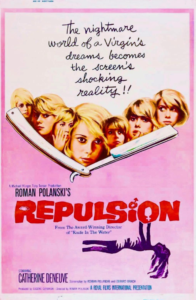
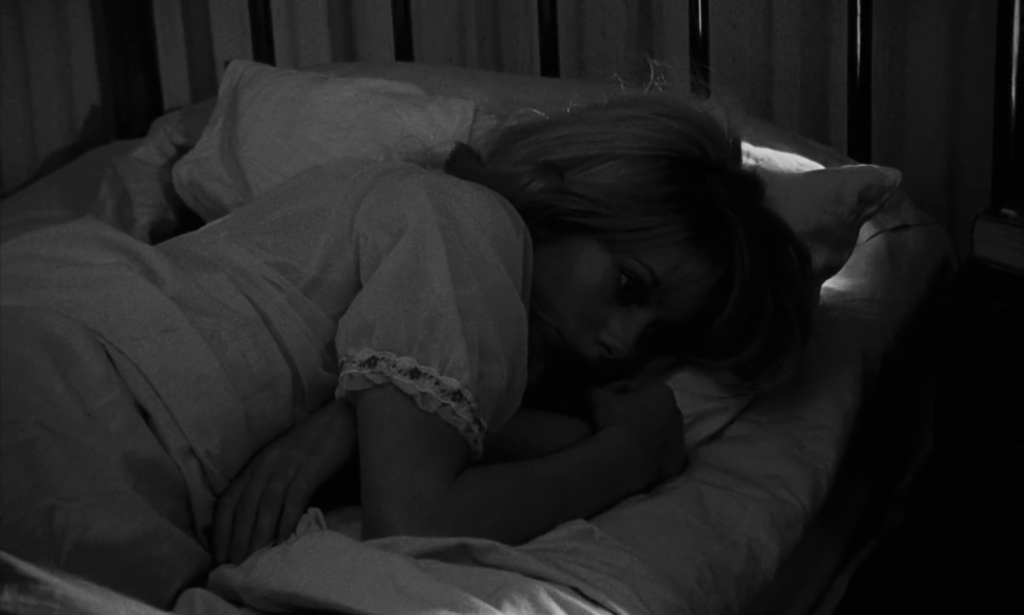
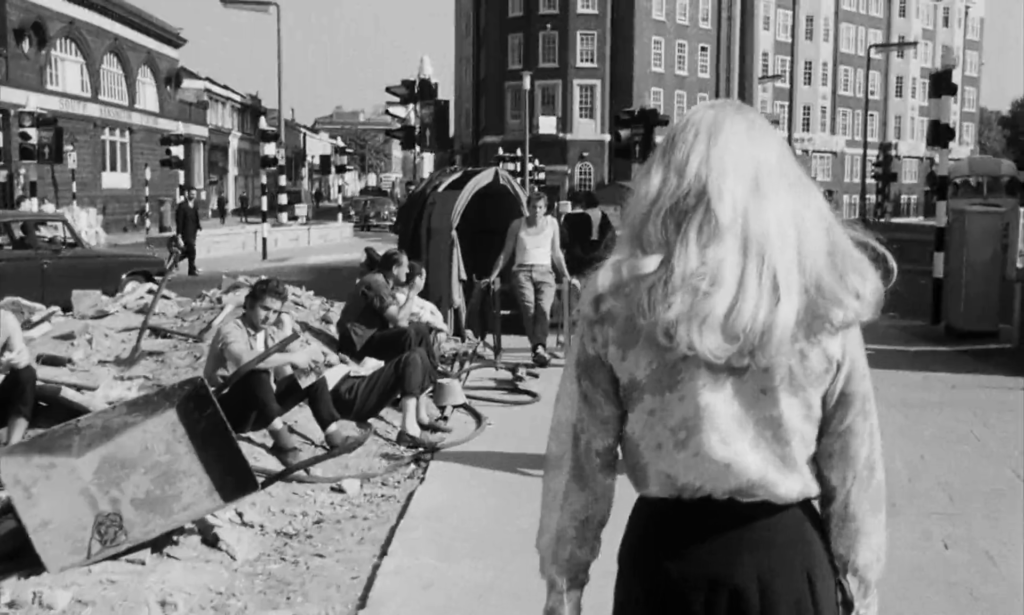
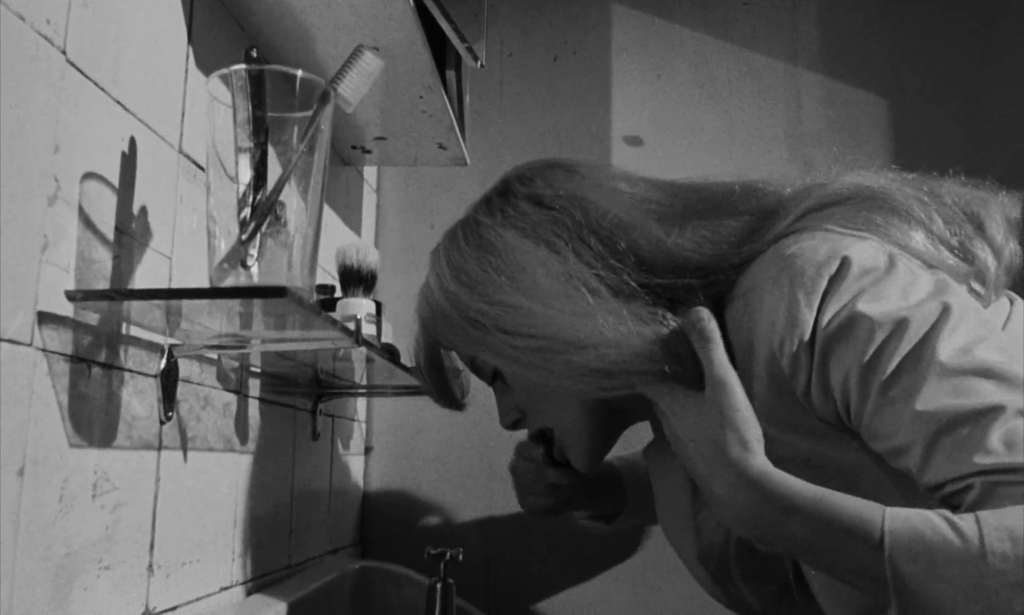
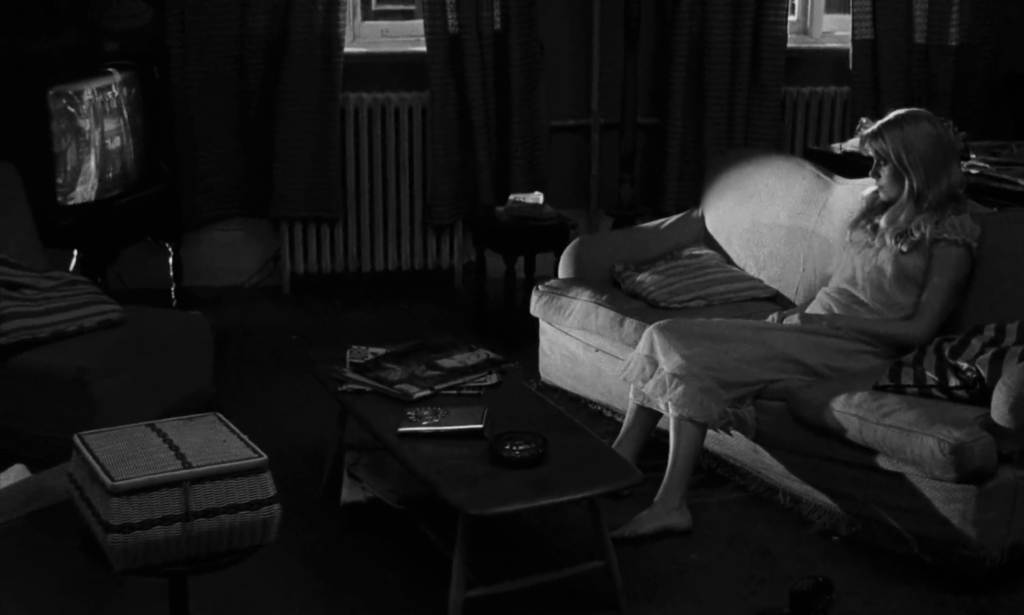
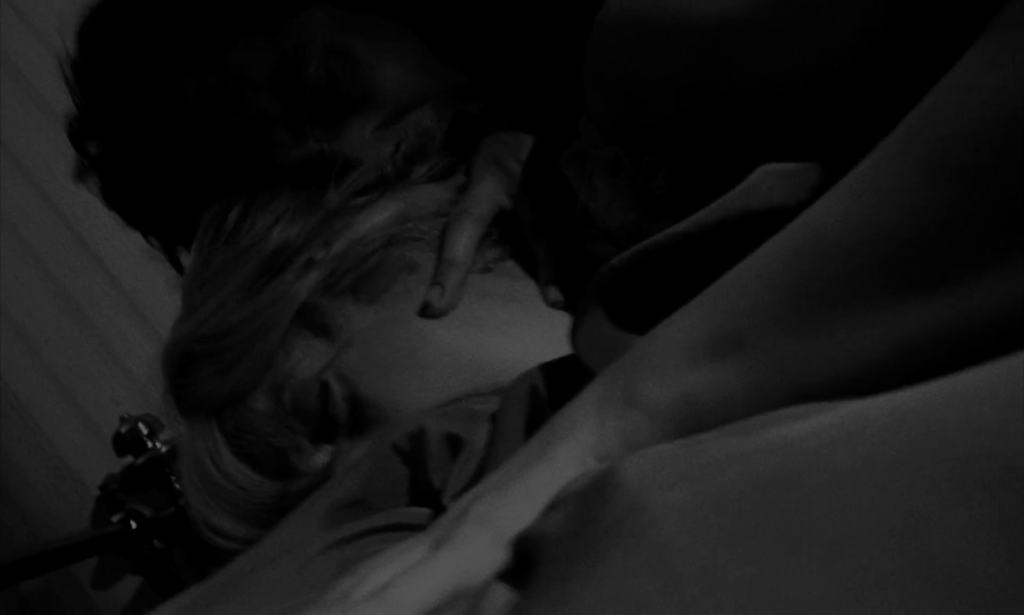
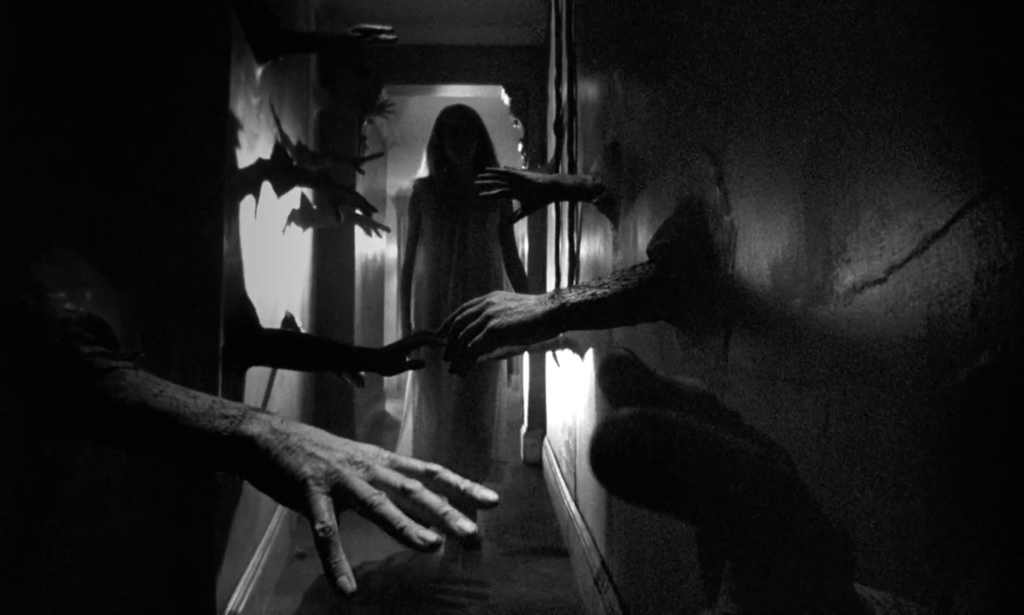
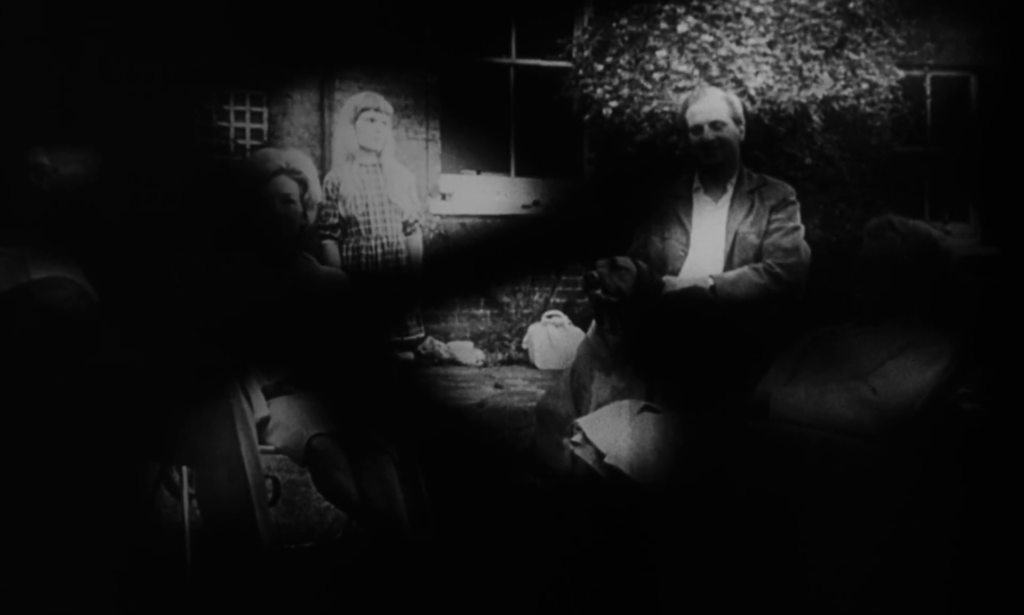
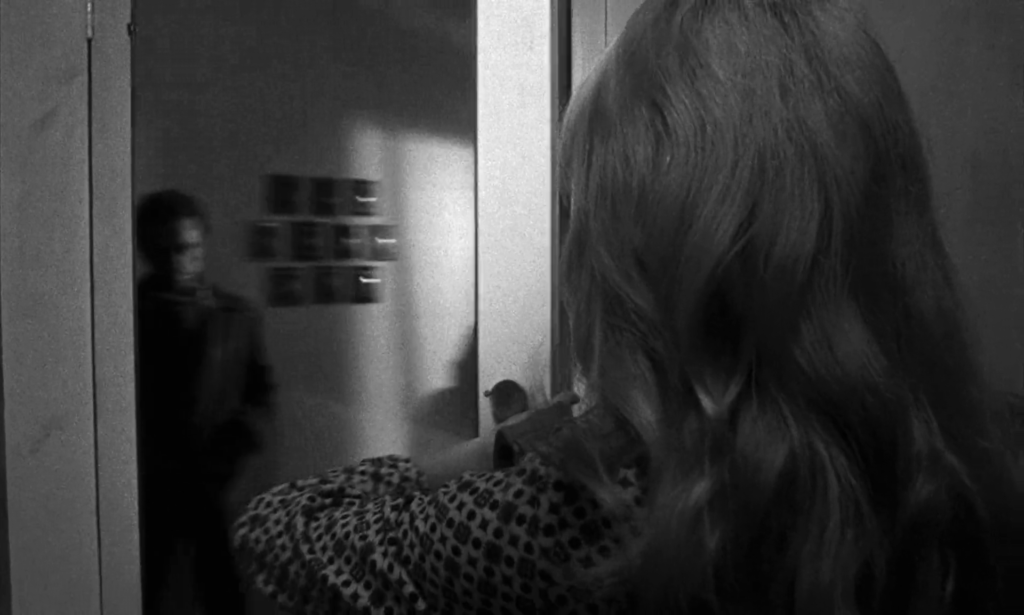
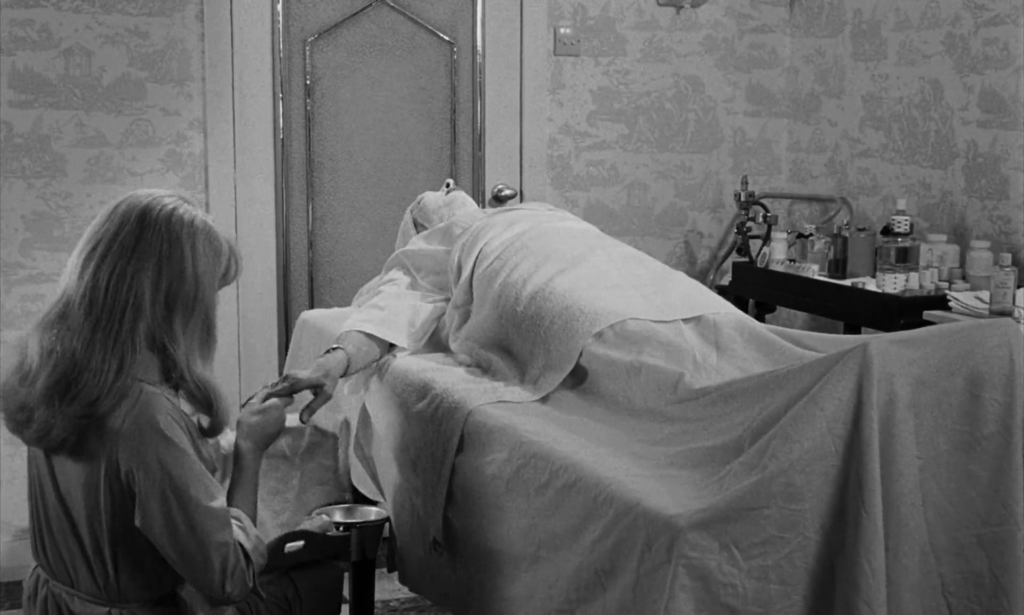
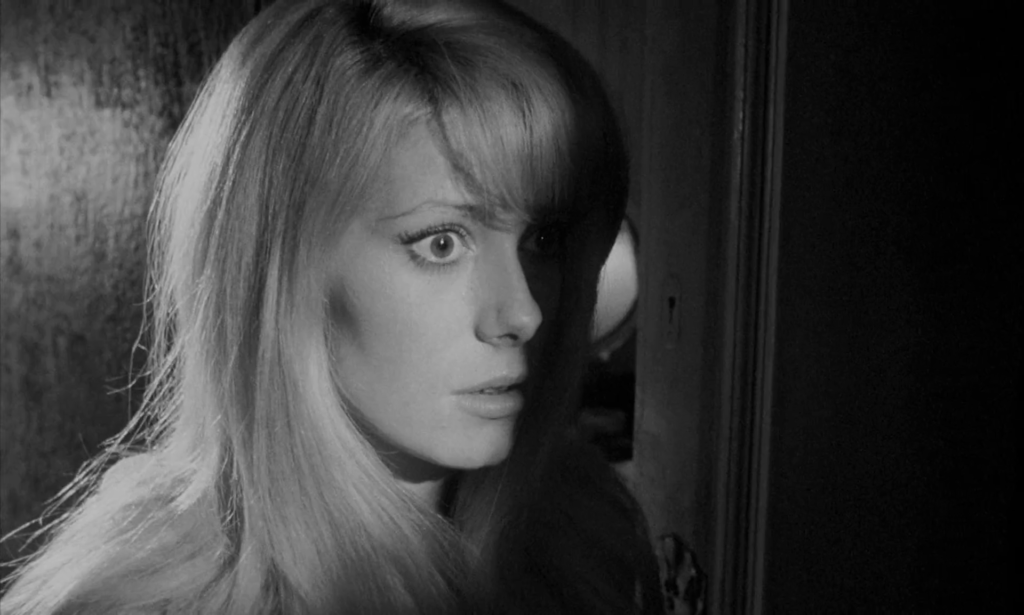
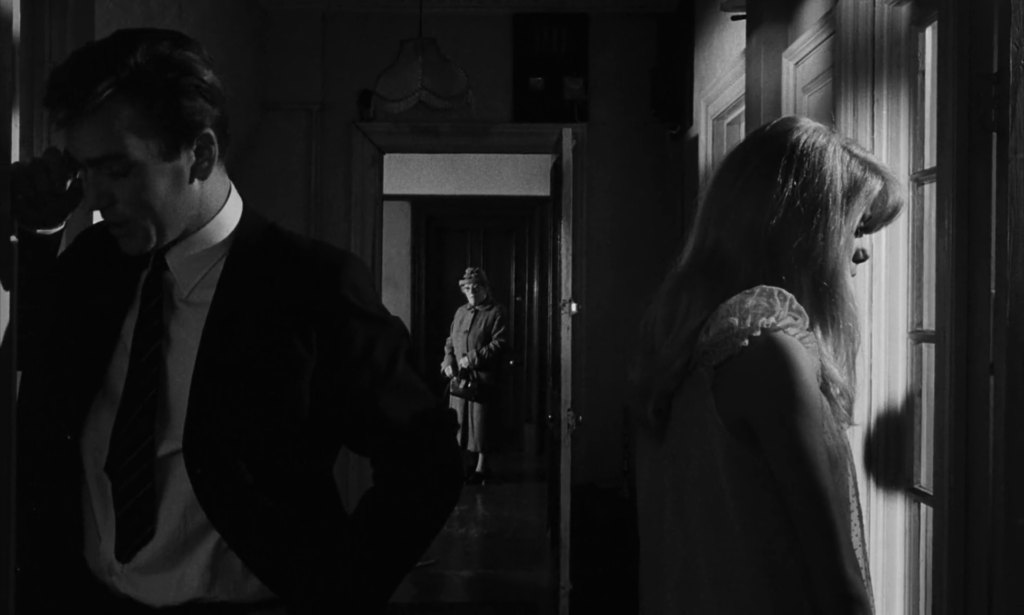
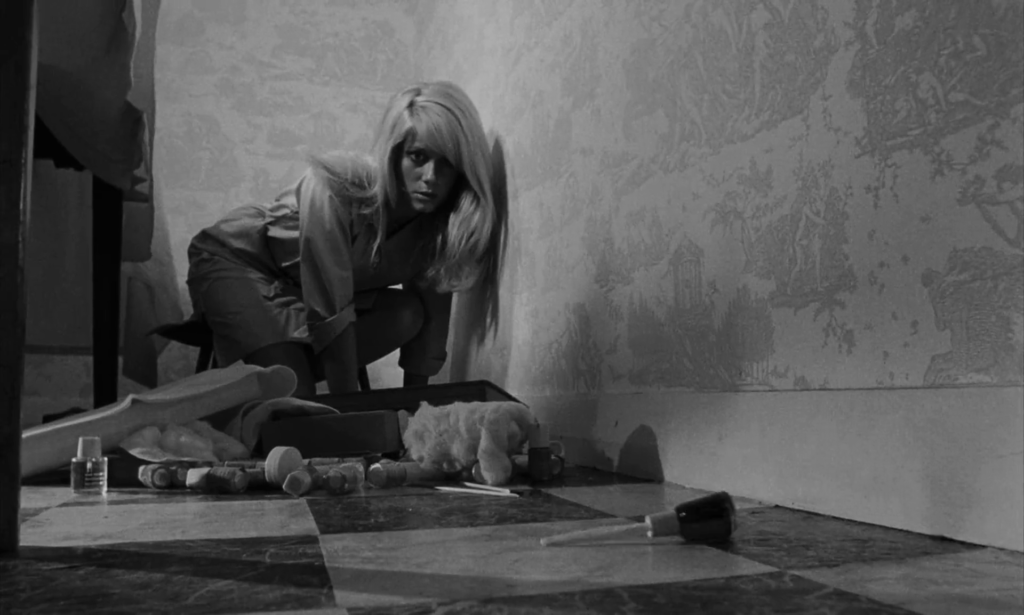
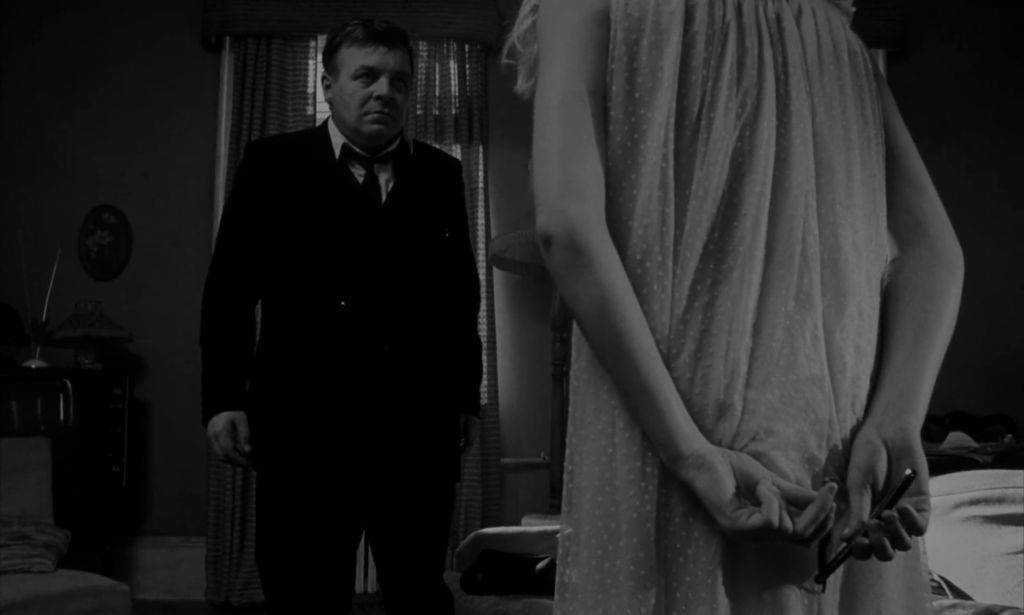
One thought on “Repulsion (1965)”
Agreed; must-see as a classic of its kind and for Deneuve’s performance. As per my 12/1/18 post in ‘Revival House of Camp & Cult’ (fb):
“I meant to get that crack mended.”
‘Repulsion’: The last time I saw this film (some years back), I imagine the print was not as good as Criterion’s recent HD transfer. It was a very low-budget film to begin with so one would think that it was always waiting for someone to put real care into its presentation. Polanski and Catherine Deneuve take turns on the commentary and they are both wonderfully informative; their memories are very sharp about every aspect of the production. Polanski reveals that – even though he received acclaim for ‘Knife in the Water – he and his co-writer Gerard Brach very much needed a job. But no studio was interested in producing ‘Repulsion’ – until a small distributor of soft-porn (thinking it might gain a different kind of porn but with a director of real note) took it on. Apparently, Polanski ‘fell into’ the horror business when that wasn’t really his intent – he just knew that was a way into the marketplace. In a DVD extra about the making of the film, DP Gil Taylor (who had just shot ‘A Hard Day’s Night’ and ‘Dr. Strangelove’ – and would later film Polanski’s ‘Macbeth’) offers up countless details about how he achieved what seemed the impossible with nearly no budget to work with; Polanski is in awe of him and gives him a lot of credit for a film he wishes had been a lot better – even though he has nothing to apologize for; the film remains powerful and a testament to what can be done with little money but a ton of imagination. As for Deneuve, her performance still chills – and it’s still among her best work.